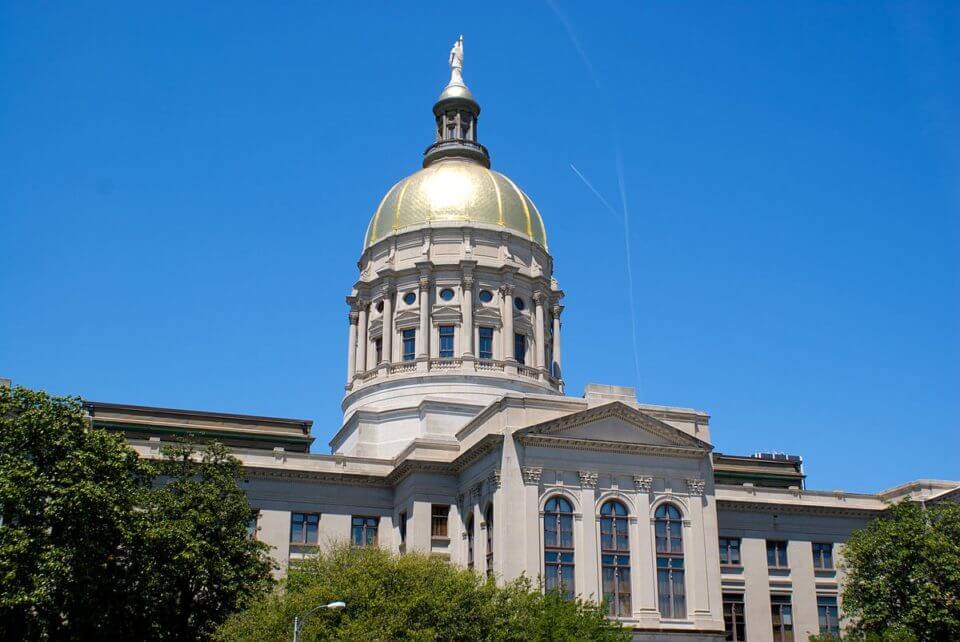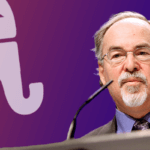
“True patriotism is the guy, man or woman, who shows up at the post office every day to be a postal clerk… I dislike and disapprove of those people who wrap themselves in the flag claiming to be patriots when they’ve…done nothing to help move this country forward.”
Jim Martin has been involved in Georgia politics since 1983, when he was elected to the state’s House of Representatives. As a member of the Georgia House, he served as chairman of multiple committees, such as the Judiciary Committee and the Human Services Subcommittee of the Appropriations Committee. In 2008, he ran as a candidate for U.S. Senate in Georgia against incumbent Saxby Chambliss and made it to a run-off election, ultimately losing to his Republican opponent. Prior to his career in politics, Mr. Martin served in the U.S. Army during the Vietnam War. On June 20th, Rep. Martin sat down with Merion West‘s Erich Prince to discuss the possibility of changing demographics in red states, the history of partisanship in Georgia, and what working across the aisle really looks like.
There was a lot of discussion around the time of the election of 2016 about certain states, such as Georgia and Texas, potentially being in play for the Democrats at the presidential level. How true were those claims? Or, even if they weren’t true then, is this something that is conceivable in the near future?
That’s a really good question. That’s the reason to have elections I guess. You never really know until you put two candidates up and you count the votes. I do think that Georgia is a conservative state and has a tradition of being a conservative state, but the definition of conservatism is changing dramatically. I’m not sure that Georgia is as conservative as that term currently means in the United States. There’s been a progressive element in Georgia politics for a long time. I guess that’s a long way to say that I do think that Georgia is changing; some of the policies that are now called “conservative” probably are more conservative than the majority of Georgia voters would have it.
I was interviewing David Shafer, candidate for lieutenant governor of Georgia, not long ago, and we were talking about the changing economics and the new startup scene in Atlanta. Are there changing voter patterns in Georgia as a result of people relocating to the state to work at these types of companies?
Well, one of the dynamics that has changed in Georgia politics has been people moving into the state. That’s not all Democratic voters, though. A number of them are Republican voters that have moved into Atlanta and into suburban Atlanta, in particular. Immigration has been a factor in Georgia politics. I don’t know if that necessarily leans toward Democrats more than Republicans—because of the nature of the jobs people have that are moving into the state. My perspective is colored by the fact that when I ran against Saxby Chambliss in 2008, neither one of us got 50 percent of the vote. I got 47 percent, and he got 49. The fact that I came that close in a contested race and I actually got into a runoff with Saxby Chambliss indicates to me that there is a possibility for a more progressive candidate to win in Georgia.
There has been this pattern of a number of fairly high-profile Southern Democrats, from Thad Cochran to Strom Thurmond, making the switch to the Republican Party. Is this more electoral strategy or a genuine reflection of the shift of where the parties stand?
It depends on the timeframe. Of course, race is always an issue in politics—and certainly in Southern politics. In the 1960s and 1970s during the period of the Civil Rights Movement, the first big rift was Phil Campbell, who changed from the Democratic Party to the Republican Party with a bunch of his supporters and became Secretary of Agriculture under President Nixon. There was a dissatisfaction with the national policy on desegregation and integration, so that was a part of it, and there’s still a part of that in Georgia politics. Georgia has always been a conservative state, so Georgia Democrats were much more conservative than Massachusetts Democrats. That’s the nature of the Democratic Party.
I used to go to national meetings, and I’d say I’m probably the most liberal Democrat in the Georgia legislature; but for your purposes, I’m probably more of a moderate Republican. It’s not hard to be one of the most liberal members of the Georgia Legislature.
It’s a sliding scale.
That’s right. Georgia has always been conservative, and I think that’s a good thing. I don’t disagree with that, and it’s been fiscally conservative since Tom Murphy, who was a long time Speaker of the House. He and I were close friends, and we were pretty much in agreement on things because we were both Roosevelt Democrats. But we also believed in being very fiscally conservative. We believed in being conservative with the taxpayer dollars.
So Georgia’s always been a conservative state. Maybe this realignment—for a period of time—was more of people moving to the more conservative party from a more liberal party. I don’t think that’s true anymore. I think that the type of conservatism that began with Newt Gingrich that now people claim as their political philosophy is nothing like the good conservatism that has existed in Georgia forever. I think if there’s a realignment of parties, it’s Georgia voters recognizing [Gingrich’s philosophy] is not exactly what they had in mind.
Do you think that Georgia currently is anything akin to a microcosm of the national polarization situation or has it fared better at the state level?
I think Governor Deal has done a good job. I knew him when he was a Democrat before he changed: when he was a member of the United States Congress. I think he’s done a good job leading the state. I disagree with him about the failure to expand Medicaid, but I agree with him on many other things that he’s done. In that sense, I do think that Georgia is different. There are some pieces of legislation that have come before the General Assembly that I strongly disagree with, but that’s part of the political process. I am always saying to folks, “Look, if the legislature—the House—has 180 members, and [they are] 180 Jim Martin’s, then that wouldn’t represent the State of Georgia.”
And so I think Governor Deal has done a good job. I’m concerned about the polarization beginning in Washington that has now permeated state governments. It’s the, “You’ve got to win, and the other side has to lose mentality,” which is anathema to a democratic process.
You served in Vietnam, and I know that we routinely see studies that say, in the past 75 percent of members serving in Congress are military veterans and we’ve seen that number creep down over time. Do you think there is some special quality about having elected officials, who have done time in the military?
I don’t know that military service is required. I’m proud of the fact that I served. I was an ROTC officer, so I wasn’t a lifetime professional member of the military. My perspective may be different from other people who are involved in the military, but I do think that having been in public service is an important part of understanding public service. There are all kinds of different ways to be engaged in public service. We value public service, value the military, value people who work as police officers, EMS workers, teachers. [Being] engaged in public service is an important perspective for elected officials to have.
That’s what troubles me the most about some of the anti-government rhetoric, which is the demonization of public servants and people who work to serve the public. There were just five members of the [Georgia] House who had served in Vietnam when I was in the legislature. We each served in a different branch of the military. I do think public service, military service, is critical to this country, and I value that. I don’t know that necessarily being a member of the military is essential to being an effective representative.
Adlai Stevenson had a wonderful way of describing it. He said that patriotism is not waving flags and running and waving in parades and doing the national anthem and all of that. True patriotism is the guy, man or woman, who shows up at the post office every day to be a postal clerk, personally shows up every day to be a firefighter, and people who serve in the military. That’s true patriotism. I dislike and disapprove of those people who wrap themselves in the flag claiming to be patriots when they’ve done nothing in public service and have done nothing to help move this country forward.
Thank you for joining us this morning.
Thank you.










